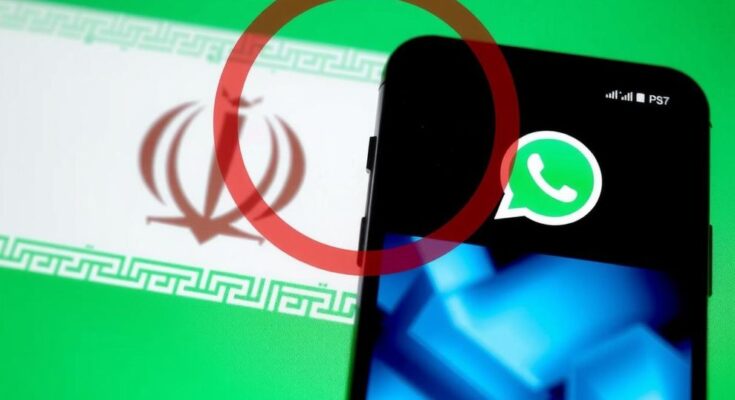Iran has lifted its ban on WhatsApp and Google Play as a preliminary measure to relax internet restrictions. President Masoud Pezeshkian led a meeting resulting in the majority vote for this decision, as reported by state media. This move comes amidst ongoing challenges related to internet censorship in the country.
Iranian authorities have officially announced the lifting of the ban on WhatsApp, a messaging platform owned by Meta, as well as on the Google Play Store. This significant move, reported by state media on Tuesday, signifies Iran’s initial step towards easing internet restrictions that have been among the most stringent globally. President Masoud Pezeshkian presided over a meeting that resulted in a majority vote favoring the removal of these limitations.
Despite having one of the most controlled internet environments in the world, many Iranians have circumvented barriers against US-based social media through the use of virtual private networks (VPNs). The official state news agency, IRNA, quoted the Minister of Information and Communications Technology, Sattar Hashemi, stating that this action marks the beginning of the reduction in internet restrictions. Notably, social media has played a pivotal role in recent anti-government protests within the nation.
In light of these developments, the United States had previously urged technology companies to assist in overcoming online censorship in nations like Iran, which impose strict controls on information sharing. The decision to reopen access to popular platforms such as WhatsApp and Google Play may reflect a shift in governmental policy regarding digital freedom and connectivity for Iranian citizens.
The Islamic Republic of Iran is known for its comprehensive control over internet access, encompassing robust censorship policies aimed at restricting access to various foreign platforms and social media. This recent decision to lift the ban on certain applications could indicate a broader consideration by the authorities to modify their approach to internet governance. Notably, many Iranians have continuously found ways to access blocked platforms, utilizing technology to navigate strict governmental limitations. The political climate, especially following protests, has heavily influenced discussions around internet freedom in the country.
In summary, the Iranian government’s recent decision to lift the ban on WhatsApp and Google Play represents an important step towards diminishing its extensive internet restrictions. This move, motivated by internal and external political pressures, particularly during a time of civil unrest, suggests a potential shift in the approach towards digital freedoms in Iran. As citizens continue to navigate restrictive internet measures, the implications of this policy change will be closely monitored.
Original Source: www.arabnews.com




